Heritage University nursing program director receives 2023 Nurse Educator Award from Washington State Nurses Association
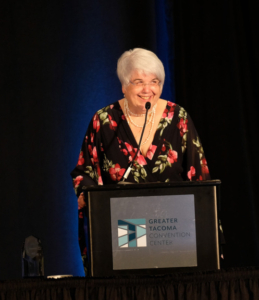
Christina Nyirati accepts 2023 Nurse Educator Award from Washington State Nurses Association
FOR IMMEDIATE RELEASE
Heritage University nursing program director receives 2023 Nurse Educator Award from Washington State Nurses Association
Toppenish, Wash. – Heritage University nursing program director Christina Nyirati, Ph.D., was recently recognized for her work in bringing nursing education to under-represented populations. Nyirati was awarded the 2023 Nurse Educator Award by the Washington State Nurses Association during its convention in May.
The award is given every two years to a member who has demonstrated excellence in nursing education through evidence-based, innovative, and inspirational methods that incorporate principles of diversity, equity, and inclusion.
Dr. Nyirati founded the BSN program at Heritage University in 2014 with the mission to advance the health of multicultural families and communities in rural environments through excellence in nursing education, service, practice, and community-based research.
“I have worked with students who come to me and say I want to be a nurse, but they had been told by their high school guidance counselor they couldn’t be a nurse because they didn’t start speaking English until they were 7, 9, or 11 years old, and they didn’t have access to college prep courses,” said Nyirati in her acceptance speech. “Most of our students have been denied admission to as many as three nursing schools.”
The school has now graduated 80 highly capable and motivated nurses from rural communities who understand their communities.
“She has shaped the nursing program’s emphasis on cultural inclusivity with particular sensitivity to the Native communities from which it draws many of its students,” said Judy Huntington, MN, RN, who nominated Nyirati. Huntington served as WSNA executive director for nearly 19 years.
Heritage University President Andrew Sund, Ph.D. said that Dr Nyirati is truly deserving of this recognition from the WSNA. “Dr. Nyirati has dedicated her career to the exceptional education of nurses and to the elevation of the nursing profession to the highest standards. Her dedication to preparing health care professionals that serve their communities with the highest level of care possible is extraordinary.”
The WSNA Recognition Awards are made biennially in celebration of individuals who have made substantial contributions in nursing practice, leadership, education, and research. Nyirati was one of 10 individuals recognized at this year’s event. WSNA is the statewide association for the 110,000 nurses in Washington state and has been at the forefront of nursing advancements since it was founded in 1908.
For more information, contact Davidson Mance at (509) 969-6084 or Mance_D@Heritage.edu.
# # #

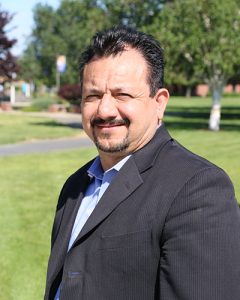
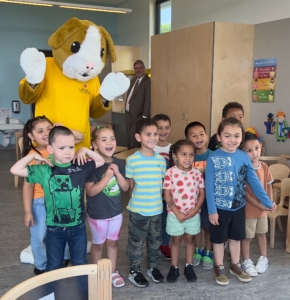
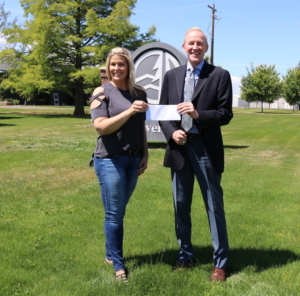

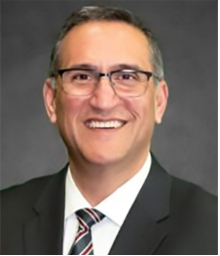 Mike Villarreal (M.Ed., Educational Administration) was elected to serve as president of the Washington Association of School Administrators for the 2002-23 academic year. Villarreal is the superintendent of Hoquiam School District, a position he’s filled since 2017.
Mike Villarreal (M.Ed., Educational Administration) was elected to serve as president of the Washington Association of School Administrators for the 2002-23 academic year. Villarreal is the superintendent of Hoquiam School District, a position he’s filled since 2017.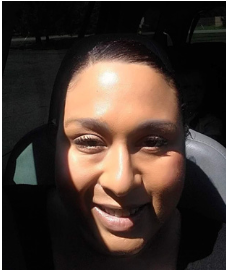
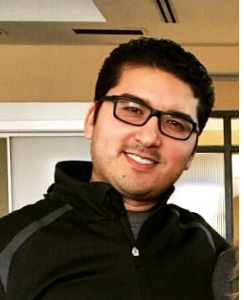 Francisco Ramirez-Amezcua (B.A., Environmental Studies) is a migrant graduation specialist at Sunnyside High School. This past fall, he was awarded Student Support Staff of the Year for the Sunnyside School District.
Francisco Ramirez-Amezcua (B.A., Environmental Studies) is a migrant graduation specialist at Sunnyside High School. This past fall, he was awarded Student Support Staff of the Year for the Sunnyside School District.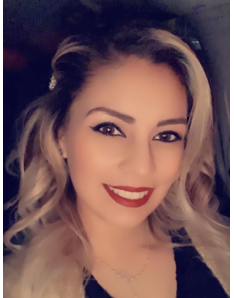 Dalia Chavez (B.A., Criminal Justice) joined the Washington State Human Rights Commission (WSHRC), where she serves as a civil rights investigator based in the Yakima Valley. The WSHRC is a state agency responsible for administering and enforcing the Washington Law Against Discrimination.
Dalia Chavez (B.A., Criminal Justice) joined the Washington State Human Rights Commission (WSHRC), where she serves as a civil rights investigator based in the Yakima Valley. The WSHRC is a state agency responsible for administering and enforcing the Washington Law Against Discrimination.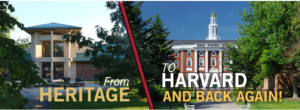
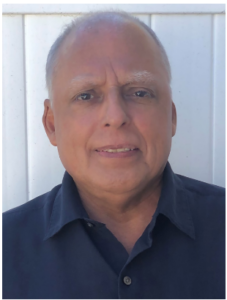
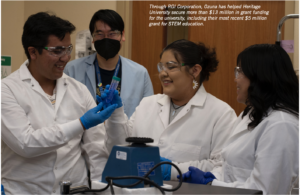
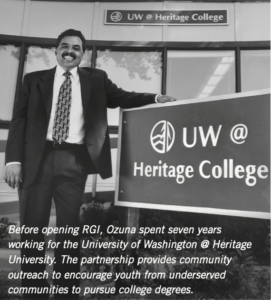 “I had worked with students and families one- on-one,” he says. “Instead of touching lives one at a time, I wanted my work to have a positive effect on as many people as possible, to do things on more of a macro instead of a micro level.”
“I had worked with students and families one- on-one,” he says. “Instead of touching lives one at a time, I wanted my work to have a positive effect on as many people as possible, to do things on more of a macro instead of a micro level.”